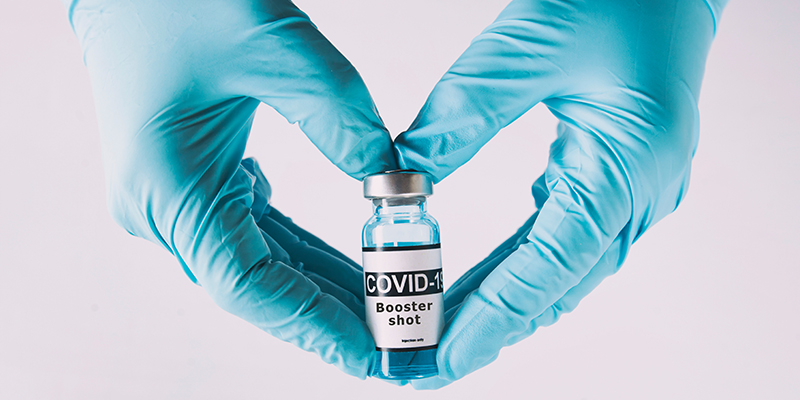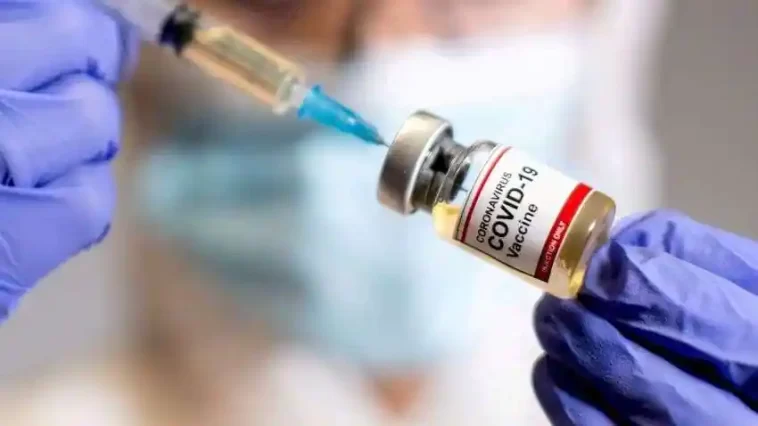Covid-19 updates: A study in The Lancet Regional Health Southeast Asia journal found that the booster dose of the Covishield vaccine, which is made in India by Serum Institute of India Pvt Ltd, gives the best immune response to new threats of a Covid infection. The study says that the best immune response comes from a Covishield booster dose, no matter what the patient’s main vaccine is. This could be Covishield or Covaxin.
The study shows that boosting a person’s vaccine response with Covishield made them make better antibodies that bind and work than if they got a booster shot of any other vaccine.
Even though both homologous and heterologous boosting with Covishield or Covaxin in people who have already been given Covishield or Covaxin are immunogenic and safe, this news is still surprising.
Also read: Republic Day 2023: Metro train timings details
With more people getting Covid-19 and new strains of the highly contagious virus coming out, it has been noticed that the primary SARS-CoV-2 vaccination wears off over time, making it harder for people to fight the new strains of coronavirus.
At this point, you must get a second dose of the vaccine. The World Health Organization (WHO) has said that booster doses should be given.
Scientists from the Christian Medical College in Vellore, Tamil Nadu, and the Centre for Cellular and Molecular Biology in Hyderabad, Andhra Pradesh, worked together on the study.
The study tried to find out about the safety and effectiveness of homologous heterologous vaccination by giving people booster doses of Covishield and Covaxin, which are the two most common vaccines given to most Indians.
People who had already gotten two shots of the vaccines were used in the study.
The study looked at four different ways to get a booster dose: getting the first shot with Covishield, then getting a homologous booster or a heterologous Covaxin booster, or getting the first shot with Covaxin, then getting a homologous booster or a heterologous Covishield booster.
We have granted provisional approval for Pfizer’s bivalent COVID-19 vaccine for use as a booster dose in individuals aged 12 years and older.
This booster targets the Omicron variants BA.4/BA.5.
Read more: https://t.co/UrPYCK2aHE pic.twitter.com/3kn6KGk72H
— TGA Australia (@TGAgovau) January 23, 2023
The participants were given two doses of Covishield or Covaxin 12–36 weeks before the study. They were then given a boost of either Covishield or Covaxin in a 1:1 ratio.
The main outcome was anti-spike IgG seropositivity 28 days after the booster. Other outcomes included anti-spike IgG levels and an evaluation of safety and reactogenicity. The study said that the results of a 90-day “intention-to-treat” analysis were shown.
In the Covishield-primed group of 200 people, the seropositivity in the heterologous Covaxin arm 28 days after the booster was 98%, which was the same as the homologous Covishield arm, which was also 98%, according to the study.
The geometric mean concentration (GMC) of anti-spike antibodies on day 28 after a heterologous Covaxin boost was 36,190.78 AU/mL, while it was 97,445.09 AU/mL after a homologous Covishield boost, according to the study.

The study said that in the Covaxin-primed group of 204 people, the seropositivity 28 days after the booster was 100% in the heterologous Covishield arm and not worse than the 96% in the homologous Covaxin arm.
The GMC after a heterologous Covishield boost was 241,681.6 AU/mL, while it was 48,473.94 AU/mL after a homologous Covaxin boost, the study said.




